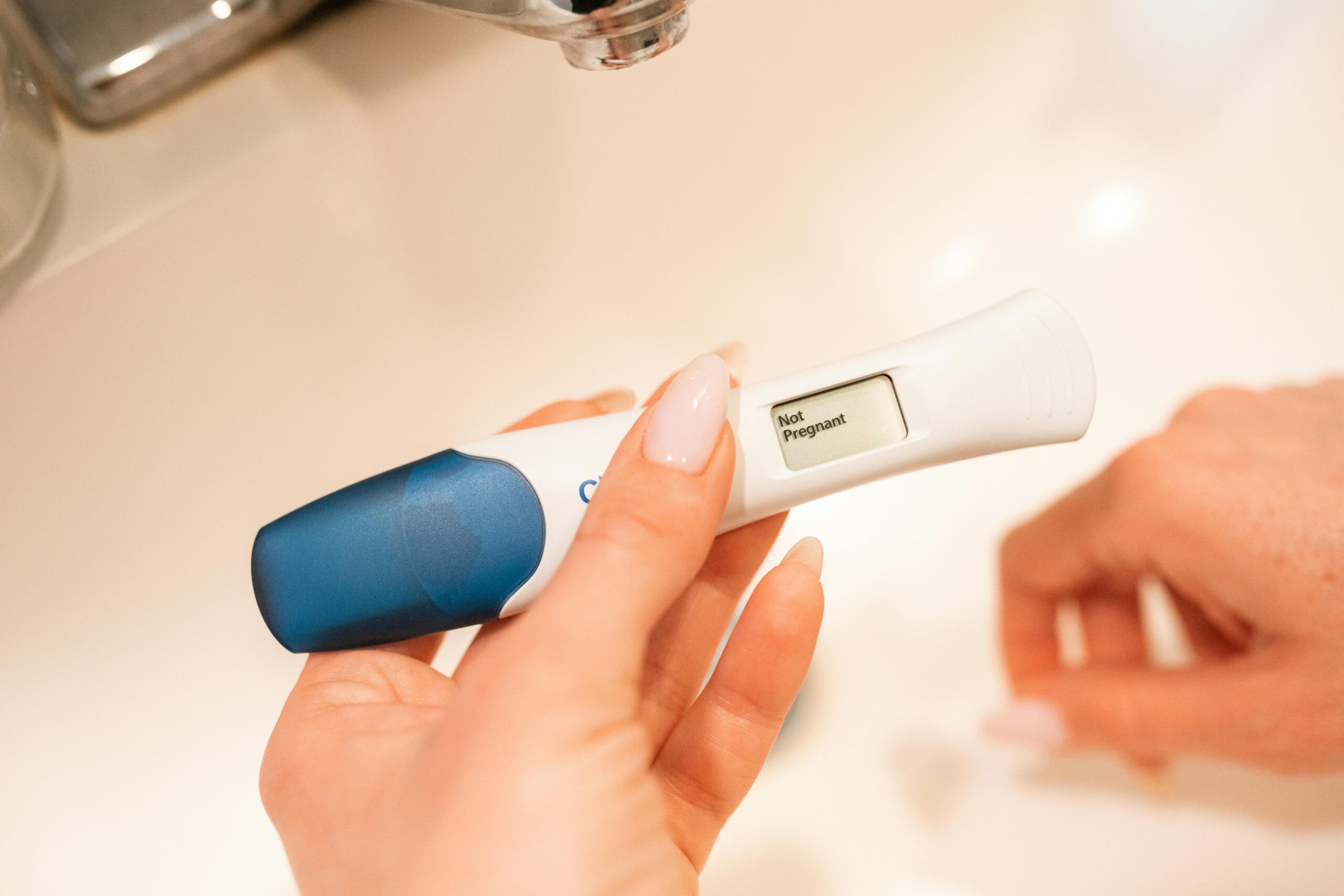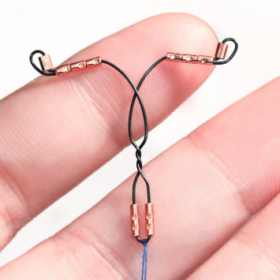
When to seek a medical review of your contraception from The Lowdown
In this article
What's the lowdown?
Prescriptions for the combined pill, patch, vaginal ring, progestogen only pill or Sayana Press injection can be given for up to 12 months at a time
The Syreniring vaginal ring can be given for up to 12 months at a time but the NuvaRing can only be issued every 3 months as it needs to be refrigerated before it is sent to you
At The Lowdown you can order your pill for FREE on the NHS via our partner pharmacy
You should have at least an annual review of your contraception with your contraception provider
There are also some reasons why you should seek out a medical review before then to check your chosen method remains a safe and suitable option for you.
We at The Lowdown are delighted to be able to offer online ordering for your combined or progestogen-only pill for free on the NHS contraception scheme via Chemist4U. You can alsos till access the patch, vaginal ring or injection through Chemist4U privately.
Now renewing your contraception is also so much easier – no routine doctor’s visits or nurse appointments, just order again through our prescriptions service. However, it’s still important to know when you should speak to a healthcare professional or contact the pharmacy to check your contraception is still safe and suitable for you to use.
Combined pill, patch and vaginal ring
The combined pill is a very commonly used method of contraception and the most frequently reviewed method at The Lowdown. It contains two hormones – oestrogen and progestogen, and can help with acne and heavy or painful periods. The patch contains the same hormones but is a thin beige plastic plaster, which is stuck to the skin and changed weekly. It’s a great option if you want the benefits of the combined pill, but don’t want to take a pill every day. Similarly the vaginal ring contains the same hormones which are released form a soft plastic ring that sits in the vagina.
Guidance in the UK tells us for these methods you should have a medical review at least once a year. If ordering your pill, patch or ring through The Lowdown you’ll be asked to complete a form containing a series of questions, including about your blood pressure, height and weight, and medical and family history when you order. When you reorder, you will be asked again to confirm these answers or tell us whether something has changed.
However there are some circumstances where you should seek a medical review before then, including the following…
When you should seek medical advice before 12 months
If you develop:
- Calf pain, swelling or redness
- Chest pain, breathlessness or coughing up blood
- Weakness or loss of sensation in the arms, legs or face, or changes to speech
These could be symptoms of a blood clot in the legs or the lungs, also known as a deep vein thrombosis (DVT) or pulmonary embolism (PE), or a stroke. These are small but recognised risks of combined contraception and require urgent medical attention. Please don’t hestitate to ring 999 or go to A&E.
If you develop:
- A breast lump, breast skin changes, nipple discharge or new nipple inversion
- New migraine
- New symptoms in the hour before a migraine starts which may be a sign of a migraine aura
- Persistent unscheduled vaginal bleeding
These symptoms should prompt you to speak to your doctor. Your doctor will review and potentially investigate these symptoms depending on the situation. It may be that some of these symptoms mean you should stop or switch your contraception.
When else should I seek medical advice?
If you develop any of the conditions listed below you should seek advice from your doctor or contraception provider. In most cases having one of these conditions will mean it is not safe for you to start or continue using combined contraception.
- High blood pressure
- High body mass index (BMI >35 kg/m2)
- Migraine or migraine with aura
- Deep vein thrombosis or pulmonary embolism
- Blood clotting abnormality
- Antiphospholipid antibodies
- Angina, heart attack, stroke or vascular disease
- Atrial fibrillation
- Cardiomyopathy
- Breast cancer or breast cancer gene mutation
- Liver tumour
- Symptomatic gallstones
- Current smoker (any number of cigarettes) or quit within the last year AND you are over the age of 35
Other important things to make sure you have covered when reviewing your contraception
- When and how to start using the combined pill, patch or ring and whether additional contraception such as condoms is required before you are protected against pregnancy
- What to do when the combined pill, patch or ring is used incorrectly or inconsistently and when you might need emergency contraception (check out our missed pill calculator if you have missed any pills)
- Health risks associated with use of the combined pill, patch or ring including the small risks of blood clots, increased blood pressure and some cancers. (See below for advice on travel, high altitude and surgery)
- How and when to get your next prescription. Remember you may need to reorder your pill, patch or ring earlier if you use your contraception continuously without breaks
- What to do if you wish to stop or switch your method of contraception. Scroll down to the ‘How to use’ section of our ‘About’ pages for the combined pill or patch or vaginal ring.
A note about the patch…
If you are using the combined patch it is important to be aware that the patch may be less effective at protecting you against pregnancy if you weigh more than 90kg. This is regardless of your height or BMI. This does not mean you cannot use it, for example if it helps with heavy or painful periods, but extra precautions such as condoms or switching to an alternative is recommended to protect against pregnancy.
A note about the vaginal ring…
The SyreniRing and NuvaRing are practically identical; they both contain the same types and amounts of oestrogen and progestogen. The key difference between these vaginal rings is that the SyreniRing has a shelf life of two years, and doesn’t need to be refrigerated, which means you can be prescribed up to a year’s supply at once. The NuvaRing however, must be refrigerated before being dispensed (sent out to you), and then used within 4 months. You should store your NuvaRing at room temperature, in a safe place away from sunlight.
How long can you use the pill, patch or vaginal ring for?
Lots of us have heard myths like you can’t use the pill for longer than 10 years or you should have a break every few years. The Lowdown? You may use the combined pill, patch or vaginal ring for contraception until the age of 50 provided there are no contraindications. After the age of 50, the risks of use generally outweigh the contraceptive benefits and you should be advised to switch to an alternative method.
For those who can safely use combined contraception there is no arbitrary maximum length of time for which the pill, patch or ring can be used. In fact, repeated starting and stopping is discouraged because the risk of a blood clot in the legs or lungs is highest in the months after you start, or when restarting after a break of more than a month.
Advice on travel, high altitude and having surgery….
Due to the small increased risk of blood clots in the legs or lungs whilst using combined contraception you should look out for and reduce other risk factors for blood clots such as periods of immobility. You should reduce periods of time where you have reduced mobility, such as on long haul flights, by regularly moving around.
If you are considering trekking to high altitudes (above 4500 m or 14500 feet) for longer than one week consider switching to an alternative contraceptive method. This is because the risk of blood clots may be higher at altitude.
Those who are immobile or have restricted mobility for an extended period of time (due to surgery or other reasons) are at increased risk for blood clots which may be further increased by use of combined contraception. You should therefore be advised to stop and switch to an alternative method of contraception at least 4 weeks prior to planned major surgery or a period of expected immobility. Talk to your doctor or surgeon if you are unsure.
Progestogen-only pill
Guidance around review of the progestogen-only pill (POP) is less strict due to fewer health risks associated with progestogen-only contraception and prescriptions can be issued for up to 12 months at a time.
If ordering your POP through The Lowdown you’ll be asked to complete a form containing a series of questions, including about your medical history when you first order. When you reorder you will be asked to confirm these answers or tell us whether something has changed.
In general reviews and follow-up should be tailored to the individual and you should be able to seek advice from your doctor, nurse or contraceptive provider at any time if problems arise, including if you are experiencing unwanted side effects.
Key reasons to seek medical advice about stopping the progestogen only pill and switching to another contraceptive include the following diagnoses:
- Angina or heart attack, or heart disease
- Stroke
- Breast cancer
- Liver cirrhosis
- Liver tumour
Some other points to make sure you’ve covered when reviewing your progestogen only pill are included in this handy checklist. If you don’t know – click on the links!
- When and how to start using the POP and whether additional contraception such as condoms is required before you are protected against pregnancy
- What to do when the POP is used incorrectly or inconsistently and when you might need emergency contraception (check out our missed pill calculator too)
- How and when to get your next prescription
- What to do if you wish to stop or switch your method of contraception. Scroll down to the ‘How to use’ section of our ‘About’ pages for the POP.
Sayana Press injection
The Sayana Press is a contraceptive injection containing a type of progestogen which you administer yourself at home every 3 months. You can have a supply of 3 months, 6 months or 12 months. To order the injection through The Lowdown via Chemist4U you must have previously been taught how to use the injection by a healthcare professional. You should seek a review of your contraception if you are experiencing unwanted side effects. You should also speak to your doctor, nurse or contraception provider about stopping the injection and switching to an alternative contraceptive if you develop:
- Vascular disease
- Angina, heart attack or heart disease
- Stroke
- Unexplained vaginal bleeding
- Breast cancer
- Liver cirrhosis
- Liver tumour
You should also seek a review of the suitability of the injection if you develop:
- High blood pressure
- Weight gain (or BMI over 30)
- High cholesterol
- Diabetes
- Or you take up smoking
These are all risk factors for heart disease and whilst one condition may not mean you should not use the injection, multiple risk factors may mean the injection is unlikely to be a suitable method.
Other points to make sure you’ve covered when reviewing your injection are included in this handy checklist. If you don’t know – click on the links!
- When and how to start using the injection and whether additional contraception such as condoms is required before you are protected against pregnancy
- What to do when the injection is used incorrectly or inconsistently and when you might need emergency contraception
- How and when to get your next prescription
- What to do if you wish to stop or switch your method of contraception. Scroll down to the ‘How to use’ section of our ‘About’ pages for the injection.
Bleeding on the progestogen-only pill or injection
Bleeding patterns are very unpredictable in the first few months of using progestogen-only contraception and breakthrough bleeding is common. Some lucky women may have no periods or infrequent periods, whereas others may bleed more frequently or have prolonged bleeding. This can settle the longer you use the mini pill or injection. Although these symptoms may be annoying, they can be normal. If your bleeding pattern suddenly changes, or you get bleeding associated with other symptoms, consider doing a pregnancy test and STI test. Get a Clearblue pregnancy test from Amazon (affiliate link).
If irregular bleeding continues or is problematic speak to your GP.
Checking if any medications or medicines can affect your contraception
When you are prescribed a new medication or buy over the counter medicines, you should check whether the medicine could affect your contraception and its effectiveness. Check this with the prescriber of any new medication, with your contraceptive provider or your pharmacist. Read our blog about antibiotics and how some may interact with your contraception.
In summary…
As always, if you are unhappy with your method of contraception, think you are experiencing unwanted side effects or have questions about your contraception you can seek advice at any time from your contraception provider, doctor or nurse or from our medical team here at The Lowdown.
Our medical review process
This article has been medically reviewed for factual and up to date information by a Lowdown doctor.





